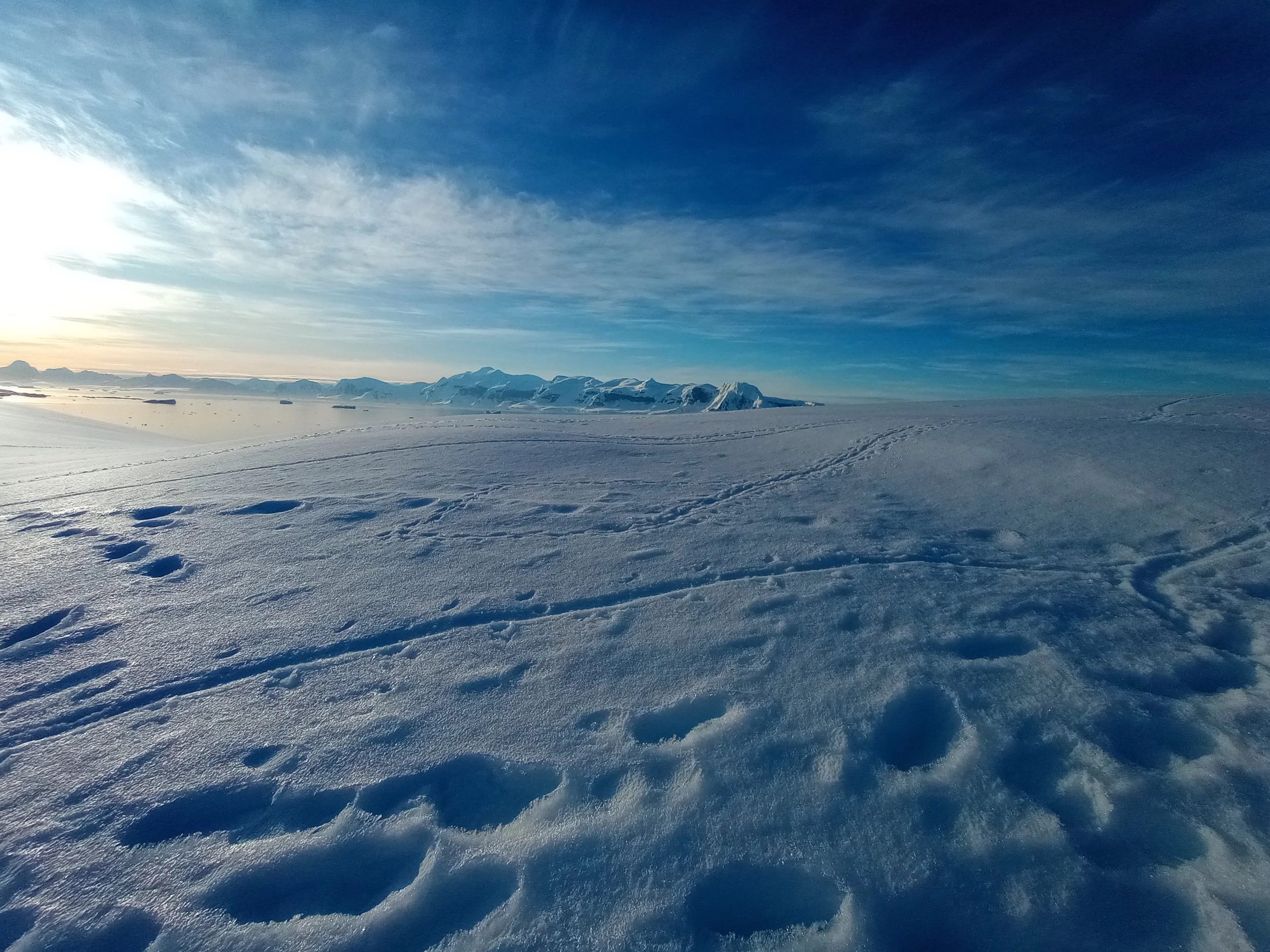PCAPS Horizon Scan: key social and behavioural science questions for advancing polar forecast information services
What does the future hold for the polar regions - and for the people who live and work there? While we don’t have a crystal ball, we do have rigorous research methods that can help us look forwards and to plan pathways to the future scenarios we would like to see. As climate change intensifies pressures on polar socio-ecological systems, PCAPS seeks to bridge the gap between the forecast information that is available and its effective application by end users. More specifically, PCAPS endeavours to improve the fidelity, actionability, and impact of environmental services in these extreme and rapidly changing polar environments.
A whale in the Antarctic fog. Photo courtesy of Machiel Lamers.
PCAPS is currently conducting a Horizon Scan to systematically identify and prioritise key scientific questions related to the relevance, actionability and impact of polar environmental forecasting services. This will support the goal of effectively bridging the gap between the forecast information that is available and its effective application by end users. The Horizon Scan is a project of the Services & Actionability Task Team, in collaboration with the Impact & Sustainability Task Team. It aims to produce a list of key questions to be included in an interdisciplinary, social and behavioural sciences and humanities research agenda for the next 10 years, which will improve understanding of, critically examine drivers and factors affecting, and enhance the actionability and impact of environmental forecast information services for the polar regions.
The Horizon Scan builds on the two PCAPS Open Sessions that were held in Hobart, Australia, and Cambridge, United Kingdom, as part of the annual PCAPS Steering Group Meetings. These sessions showed that, while technical challenges relating to aspects such as data gaps and model uncertainties persist, the most significant obstacles highlighted in the discussions pertained to human and institutional issues. These included lack of communication, coordination, and understanding between people, institutions and disciplines. This highlights perfectly the necessity of interdisciplinary and transdisciplinary projects like PCAPS that help bring together scientific and technical advancements alongside research that seeks to understand real-world challenges and opportunities.
We sought input from polar operators, researchers, and stakeholders to inform the Horizon Scan, which draws on structured expert elicitation methods. The process, which is similar to that used by the Scientific Committee on Antarctic Research in 2014, will lead to the development of an interdisciplinary research agenda and priorities for the next decade.
The Horizon-Scanning process includes an initial open-ended exploratory survey followed by a second round where experts refine and rank identified needs. Specifically, in the first survey step, we asked questions such as:
What is the most significant challenge to improving environmental forecasting services in polar regions?
What are the most critical bottlenecks [i.e., what impedes progress] in relation to the questions you provided?
What will be the key societal outcomes - both positive and negative - if environmental forecasting services in Polar Regions are improved?
What research projects and programmes, if any, are currently addressing the above questions?
Collating the data from nearly 140 responses helps us to see that topics like funding, data quality, spatial coverage of observations, and data storage and accessibility are all issues of concern. Stakeholder perspectives of the reliability of the forecasts was also flagged as important – this speaks to the value chain cycle, and the importance of social licence and clear communication channels, to ensure user feedback informs future forecasting activity. Analysis of the full data set of responses – including the specific questions proposed by the community – is currently underway, with expanded results expected to be presented in February 2026.
A view of the Antarctic horizon. Photo courtesy of Vicki Heinrich.
The priorities identified through the Horizon Scan process will help guide future research. We strongly believe that the work and results that come out from PCAPS will help inform both the planning activities and work of the 5th International Polar Year (2032-2033).
PCAPS facilitates the cooperation between different stakeholders and different disciplines can help to effect real world change that ultimately improves human safety in both polar regions. By aligning research with operational needs, PCAPS will support improved forecast usability and address broader socio-environmental challenges such as indigenous knowledge integration, governance, and adaptation strategies for decision-makers and communities. Knowing what the challenges are at each step of the value cycle is the first step to moving towards a future where access to desired products and services is easy and effective. We look forward to presenting full findings from the horizon scan process in the coming months.



